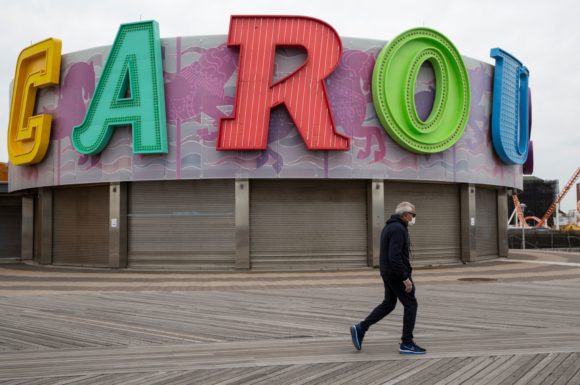It’s time to figure out what constitutes an “act of God.”
Lawyers’ phones have been ringing off the hook in recent weeks, as tenants and landlords grapple over rent payments with much of the U.S. economy shut down. More than $20 billion in retail rent comes due each month in the U.S., and both sides are hoping “force majeure” offers protection.
Force majeure, a French term that means superior force, is an obscure clause in contracts, including leases, that’s supposed to set ground rules for when a business is hit by things like a hurricane or fire. But is a virus covered? It’s complicated.
“Is it doing what it’s intended to do? That is anybody’s guess at this point,” said Michael Ostermeyer, partner at the law firm Ballard Spahr.
While force majeure often lets parties out of contractual obligations because of an unforeseen disruption, legal language varies from lease to lease. Unless pandemics are explicitly named, its unclear whether the coronavirus qualifies.
In addition, rent is often not covered by the force majeure clauses, meaning the payments are still due, according to Dena Cohen, partner in the real estate practice at Herrick Feinstein.
Some attorneys are advising landlords to avoid legal action if rent checks don’t materialize. Still, some of these lease disagreements will likely end up in court.
“There are no easy answers here,” said Cohen, who is already seeing contracts evolve to include language that mentions illness and pandemics.
BarkPark, a pet-care chain in Philadelphia, has closed its three locations and laid off most of its 30-person staff. James Gitto, the company’s owner, recently checked his leases and learned that force majeure didn’t cover his rent.
After consulting his attorney, Gitto paid about $5,600 in April rent on one location using a security deposit. Another landlord allowed a delay on half the payment, and the third gave no assistance, he said.
“The clause itself states we should be free from the lease requirements,” Gitto said. “And then the last line says: Except for rent.”
About the photo: A pedestrian wearing a protective mask walks past a closed carousel on the Coney Island Boardwalk in the Brooklyn borough of New York on Monday, April 20, 2020. Mayor Bill De Blasio has ordered all city pools and beaches shut down for the summer.
Was this article valuable?
Here are more articles you may enjoy.


 One out of 10 Cars Sold in Europe Is Now Made by a Chinese Brand
One out of 10 Cars Sold in Europe Is Now Made by a Chinese Brand  Uber Jury Awards $8.5 Million Damages in Sexual Assault Case
Uber Jury Awards $8.5 Million Damages in Sexual Assault Case  Credit Suisse Nazi Probe Reveals Fresh SS Ties, Senator Says
Credit Suisse Nazi Probe Reveals Fresh SS Ties, Senator Says  Elon Musk Alone Can’t Explain Tesla’s Owner Exodus
Elon Musk Alone Can’t Explain Tesla’s Owner Exodus 